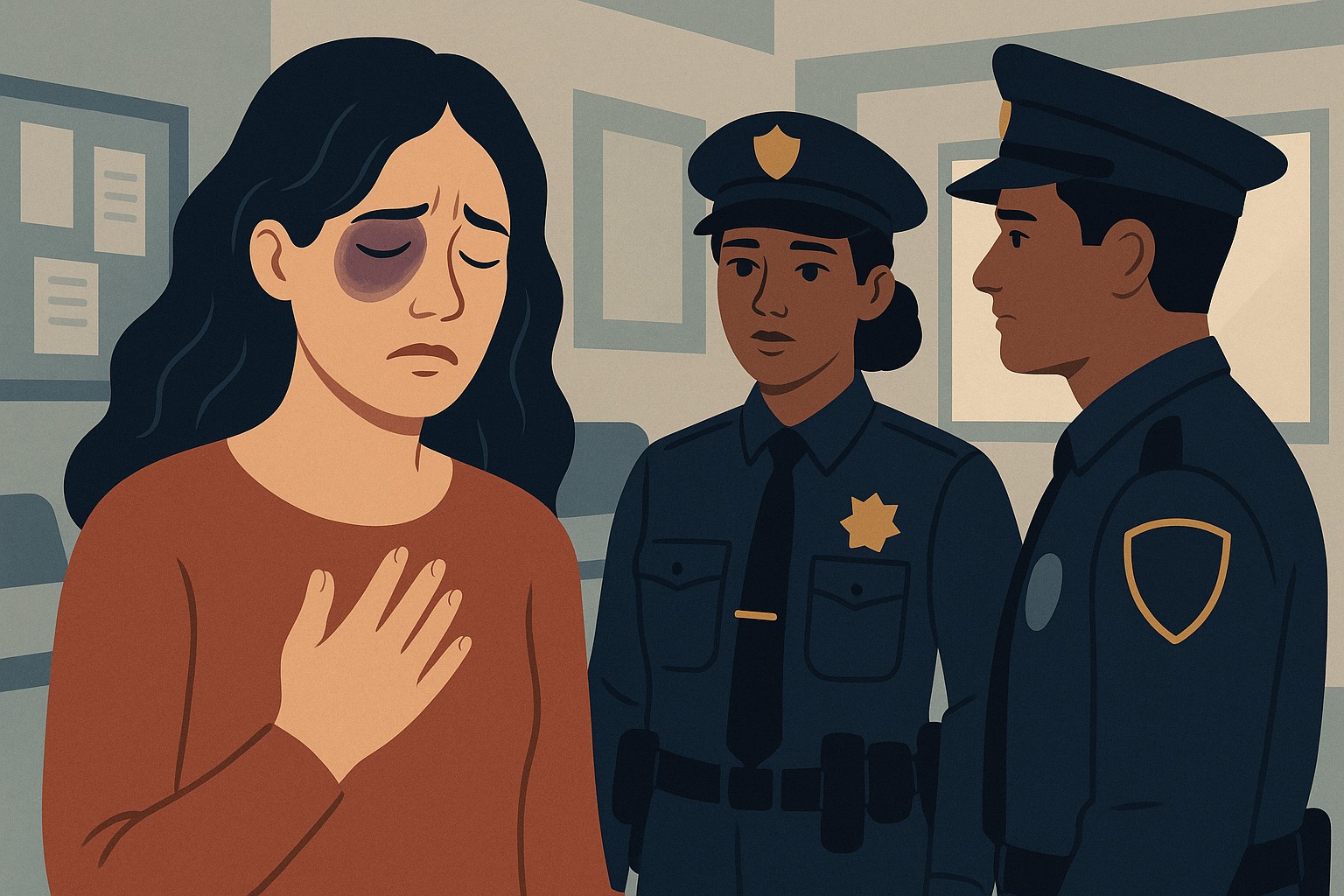Reporting Domestic Violence to the Police in Ontario: What Survivors Should Know
If you’re considering reporting abuse to the police in Ontario, you may feel uncertain or afraid. This guide outlines what happens when you report domestic violence, how officers respond, and what support is available.

🚨 Reporting Domestic Violence to the Police in Ontario: What Survivors Should Know
If you’re in an abusive situation, contacting the police may feel overwhelming. You may worry about retaliation, not being believed, or losing control of what happens next. This guide helps you understand your rights, the reporting process, and what support exists in Ontario.
📞 What Happens When You Call 911?
- The dispatcher will ask your name, location, and whether you're safe
- If in immediate danger, officers will be sent to your location
- You can request a female officer or interpreter if needed
- Police may separate you from the abuser to get individual statements
- They will assess risk to you and any children present
⚖️ What Police May Do After a Domestic Violence Report
- Lay criminal charges even without your consent, if there’s enough evidence
- Remove the abuser from the home if there's a risk to your safety
- Issue no-contact bail conditions right away
- Offer to help you connect with Victim Services Ontario for safety planning
- Provide emergency access to shelter or transportation
In Ontario, police are required to act when they believe domestic violence has occurred. This is called a mandatory charging policy.
🗂️ What You Can Provide to Support Your Report
- Verbal account of what happened (be honest and detailed)
- Injuries, bruises, or damaged property
- Photos, text messages, voicemails, or emails
- Names of any witnesses
- Any previous incidents, restraining orders, or police involvement
🧾 Will You Have to Press Charges?
- No, it is not up to you—the Crown Attorney makes that decision
- Once charges are laid, the case belongs to the Crown, not the survivor
- You may be called to testify, but some cases resolve without trial
🧠 Emotional Impact and Survivor Considerations
- Reporting can bring relief, but also fear and emotional strain
- You may worry about custody, housing, or financial control
- Talk to a legal advocate or women’s shelter worker before or after calling police
- You can still access help even if you choose not to report
🧒 What About Children?
- Police will notify Children’s Aid Society (CAS) if children are present or exposed to violence
- This is not a punishment—it’s a child safety protocol
- CAS may follow up to assess needs and offer support
🧭 After Reporting: What Comes Next?
- You may receive a case number and contact for the investigating officer
- Victim Services Ontario may offer:
- Safety planning
- Emergency housing
- Court preparation
- Referrals for counselling or legal support
- You can apply for a peace bond or restraining order for longer-term protection
📌 Summary: Reporting Domestic Violence in Ontario
- ✅ Call 911 if you are in danger—officers will respond and assess the situation
- ✅ Police may lay charges without your consent
- ✅ Your story, evidence, and safety matter
- ✅ You are not alone—support is available throughout the process
- ✅ You can also report in person at a police station or through Victim Services
📍 Ontario Resources
- Assaulted Women’s Helpline – 1-866-863-0511 (24/7)
- Victim Support Line (Ontario) – 1-888-579-2888
- Luke’s Place – Legal help for women escaping abuse
- Barbra Schlifer Clinic – Legal, counselling, interpretation services
- 211 Ontario – 211ontario.ca for local supports
